
Acacia colei is a perennial bush or tree native to northern Australia and southern Asia. A common name for it is Cole's wattle. Acacia colei blooms from May through September and the flowers are bright yellow.
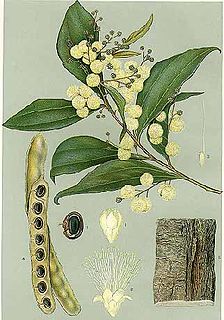
Acacia binervata, commonly known as two-veined hickory, is a shrub or tree that is endemic to eastern Australia.

Acacia gonoclada, also known as ganambureng, is a tree or shrub belonging to the genus Acacia and the subgenus Juliflorae that is endemic to northern Australia.

Acacia limbata is a shrub belonging to the genus Acacia and the subgenus Juliflorae that is endemic across northern Australia.

Acacia neurocarpa is a shrub or tree belonging to the genus Acacia and the subgenus Juliflorae that is endemic to northern Australia.

Acacia ryaniana is a shrub of the genus Acacia and the subgenus Phyllodineae that is endemic to an area along the west coast of Australia.
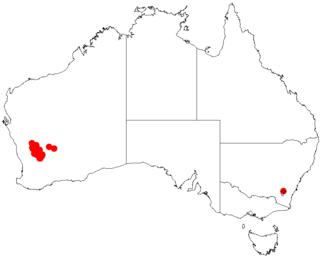
Acacia obtecta is a shrub of the genus Acacia and the subgenus Plurinerves that is endemic to a small area in south western Australia.
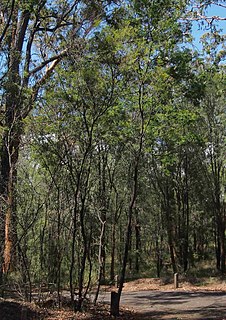
Acacia storyi, commonly known as Story's wattle, is a species of Acacia of the subgenus Botrycephalae that is native to eastern Australia. It is listed as near threatened according to the Nature Conservation Act 1992 of Queensland.

Acacia falciformis, also commonly known as broad-leaved hickory, hickory wattle, mountain hickory, large-leaf wattle, tanning wattle and black wattle, is a shrub belonging to the genus Acacia and the subgenus Phyllodineae that is endemic to eastern Australia

Acacia polifolia is a shrub belonging to the genus Acacia and the subgenus Phyllodineae that is native to parts of eastern Australia.
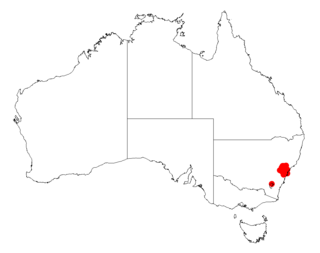
Acacia saliciformis is a shrub or tree belonging to the genus Acacia and the subgenus Phyllodineae native to eastern Australia.

Acacia saxicola, commonly known as Mount Maroon wattle, is a shrub belonging to the genus Acacia and the subgenus Phyllodineae native to eastern Australia.

Acacia blakei, commonly known as Blake's wattle or Wollomombi wattle, is a shrub belonging to the genus Acacia and the subgenus Juliflorae that is native to north eastern Australia.

Acacia caroleae, also known as Carol's wattle or narrow leaf currawong, is a shrub belonging to the genus Acacia and the subgenus Juliflorae that is native to north eastern Australia.

Acacia cretata is a shrub or tree belonging to the genus Acacia and the subgenus Juliflorae that is native to north eastern Australia.

Acacia tenuinervis is a shrub or tree belonging to the genus Acacia and the subgenus Juliflorae that is native to north eastern Australia.

Acacia polystachya is a tree belonging to the genus Acacia and the subgenus Juliflorae that is native to north eastern Australia.

Acacia legnota, also known as heath wattle, is a shrub of the genus Acacia and the subgenus Plurinerves that is endemic to an area of north eastern Australia.
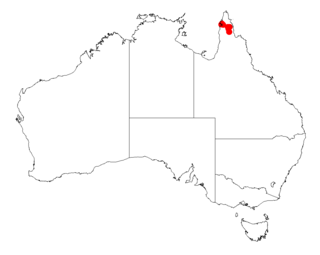
Acacia ommatosperma is a shrub of the genus Acacia and the subgenus Plurinerves that is endemic to an area of north western Australia.
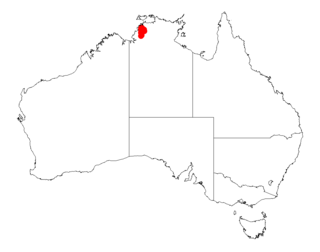
Acacia is a shrub or tree of the genus Acacia and the subgenus Plurinerves that is endemic to an area of northern Australia.




















